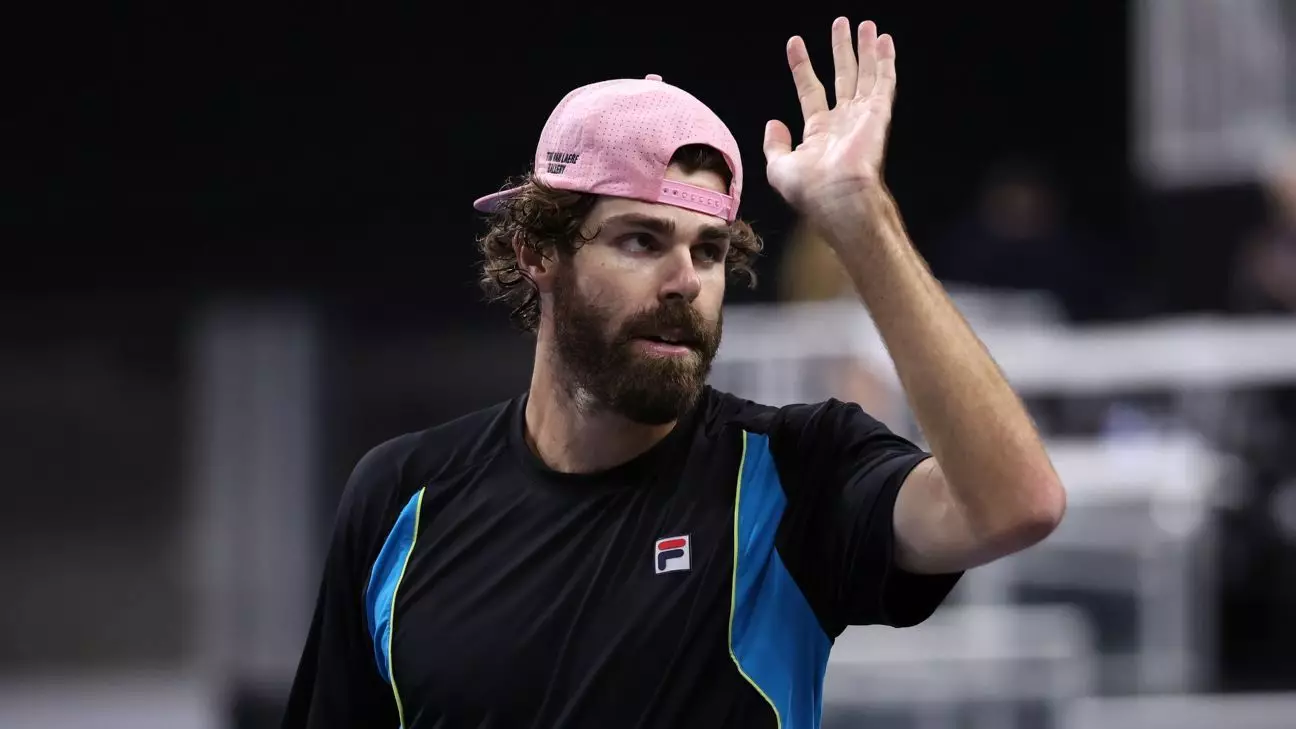In a recent match at the Dallas Open, American tennis player Reilly Opelka found himself embroiled in a contentious clash with chair umpire Greg Allensworth. The incident arose during Opelka’s last 16 showdown against Cameron Norrie when the player halted play to confront a spectator he claimed was deliberately coughing to disrupt his serve. This moment of confrontation not only showcased Opelka’s fiery temperament but also highlighted the complexities of officiating in high-stakes sports, where the line between player conduct and spectator behavior can often become blurred.
The Consequences of Confrontation
Opelka’s emotional response to the spectator’s perceived provocation was met with a swift penalty from umpire Allensworth, who issued a code violation followed by a point penalty for the player’s audible obscenities. Regulations in the ATP rulebook stipulate that wrongdoings can lead to escalating punishments, which in Opelka’s case included a financial penalty alongside a point deduction. His subsequent comments post-match indicated his belief that Allensworth mishandled the situation, asserting that the umpire’s inability to control the crowd and his emotional stance nearly jeopardized the outcome of the match.
A Player’s Perspective on Officiating
Opelka, known for his big serve and strong on-court presence, expressed frustration over feeling unsupported by the officiating staff. He characterized Allensworth as “the worst ref on the ATP,” arguing for a reevaluation of the umpire’s position in light of the match’s circumstances. This sentiment resonates with many athletes who grapple with the unpredictability of officiating and the profound impact it can have on matches. For Opelka, the stakes were especially high, as he ultimately won the match but not without a significant emotional toll.
In the wake of this incident, Opelka advocated for more rigorous accountability measures within the ATP officiating ranks. He proposed that Allensworth should face consequences for his actions, suggesting a temporary suspension as an appropriate response. This appeal for reforms highlights an ongoing discourse within professional sports regarding the standards to which referees and umpires are held. If officials fail to maintain an atmosphere conducive to fair play, it raises pertinent questions about their qualifications and the hiring protocols in place.
As the ATP circuit continues, Opelka’s situation may serve as a catalyst for change in officiating practices. Players’ voices, particularly those of prominent athletes like Opelka, carry significant weight in pushing for enhancements. With public scrutiny on officiating mounting, it’s imperative that governing bodies take an introspective look at their processes. As Opelka gears up to face third seed Tommy Paul in the next round, the broader implications of his experience remain an important topic of conversation in the tennis community. Only through reflection and open dialogue can tennis ensure a level playing field and maintain the integrity of the sport.


Leave a Reply